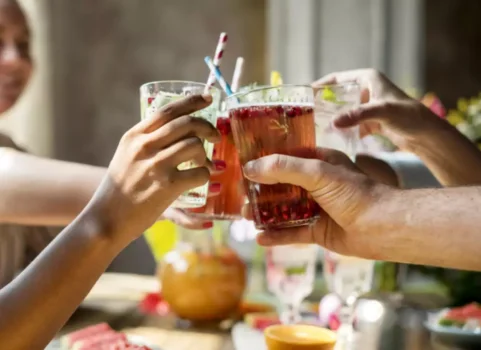
Recovering alcoholics may turn to sugar as a coping mechanism to manage stress and fill the void left by alcohol. Sugar can provide a temporary sense of comfort and pleasure, which can be appealing to individuals in recovery who may be dealing with uncomfortable emotions and why do alcoholics crave sugar stressors. The act of consuming sugar may serve as a way to distract from or alleviate stress temporarily. However, it’s important to note that while sugar may provide temporary relief, excessive consumption can lead to health problems and potentially trigger relapse.
Biological Influences on Cravings

However, the association of pleasure with alcohol consumption drives individuals to continue drinking to maintain the euphoric buzz [1]. Drug rehab involves a comprehensive process of detoxification, personalized therapy, and ongoing aftercare to help individuals overcome substance abuse and maintain long-term sobriety. By addressing both the physical and psychological aspects of addiction, rehab provides the necessary support and resources for successful recovery.
What foods and vitamins are beneficial for recovering alcoholics?
- In conclusion, managing sugar cravings is an important aspect of recovery from AUD.
- This is because alcohol inhibits your body’s response to insulin, the hormone that helps regulate blood sugar levels.
- It is crucial to prioritize low-sugar and nutrient-dense foods to support recovery and overall well-being.
- These include disruptions to your body’s blood sugar regulation, and mood swings due to a drop in serotonin.
Understanding the biological factors that contribute to sugar cravings in individuals with alcohol use disorder (AUD) is essential to gaining insight into this phenomenon. Hypoglycemia, characterized by low blood sugar levels, is a common physiological effect of alcohol consumption. Heavy drinkers can be particularly susceptible to this condition due to alcohol’s impact on blood sugar levels. Holistic approaches to recovery may include various therapies, such as mindfulness-based techniques, yoga, and other physical activities.
Hidden Dangers of Alcohol Addiction in High-Functioning Individuals
Herbal teas, such as chamomile or peppermint, can be a soothing and sugar-free option to satisfy cravings. These teas can be enjoyed hot or cold, providing a relaxing and flavorful experience. Alcohol cravings can be difficult to manage alone, and there’s no shame in needing a little extra support. In other words, what works for a friend won’t always work for you. That’s why building your own recovery toolkit can make a difference in your ability to weather the most intense cravings. Taking time to explore the specific people, places, and situations that cue your urge to drink can make a big difference.
This can be dangerous for people dealing with alcohol addiction. Here’s how food cravings work and what you can do if you find yourself hunting for sweet or salty foods. The reasons that our bodies crave these foods is because they are loaded with ingredients that tap into the pleasure centers in our brain. According to Czerwony, the key features of sugar addiction are volume, frequency and feelings. From inpatient to outpatient, explore the details and get empowered on your recovery journey.
Journal your food intake
Understanding the Stages of the Addiction Cycle

Dopamine and Reward System

